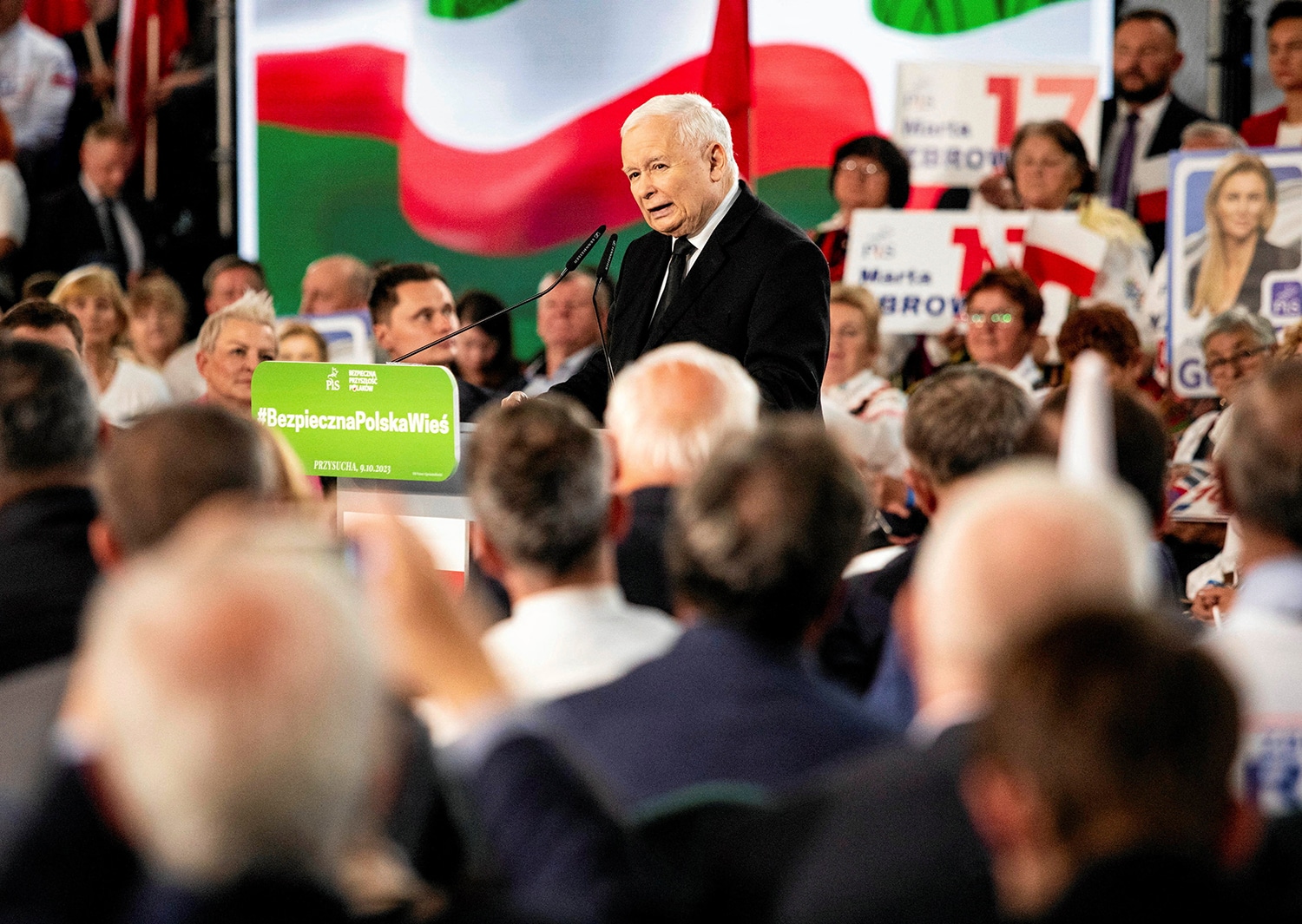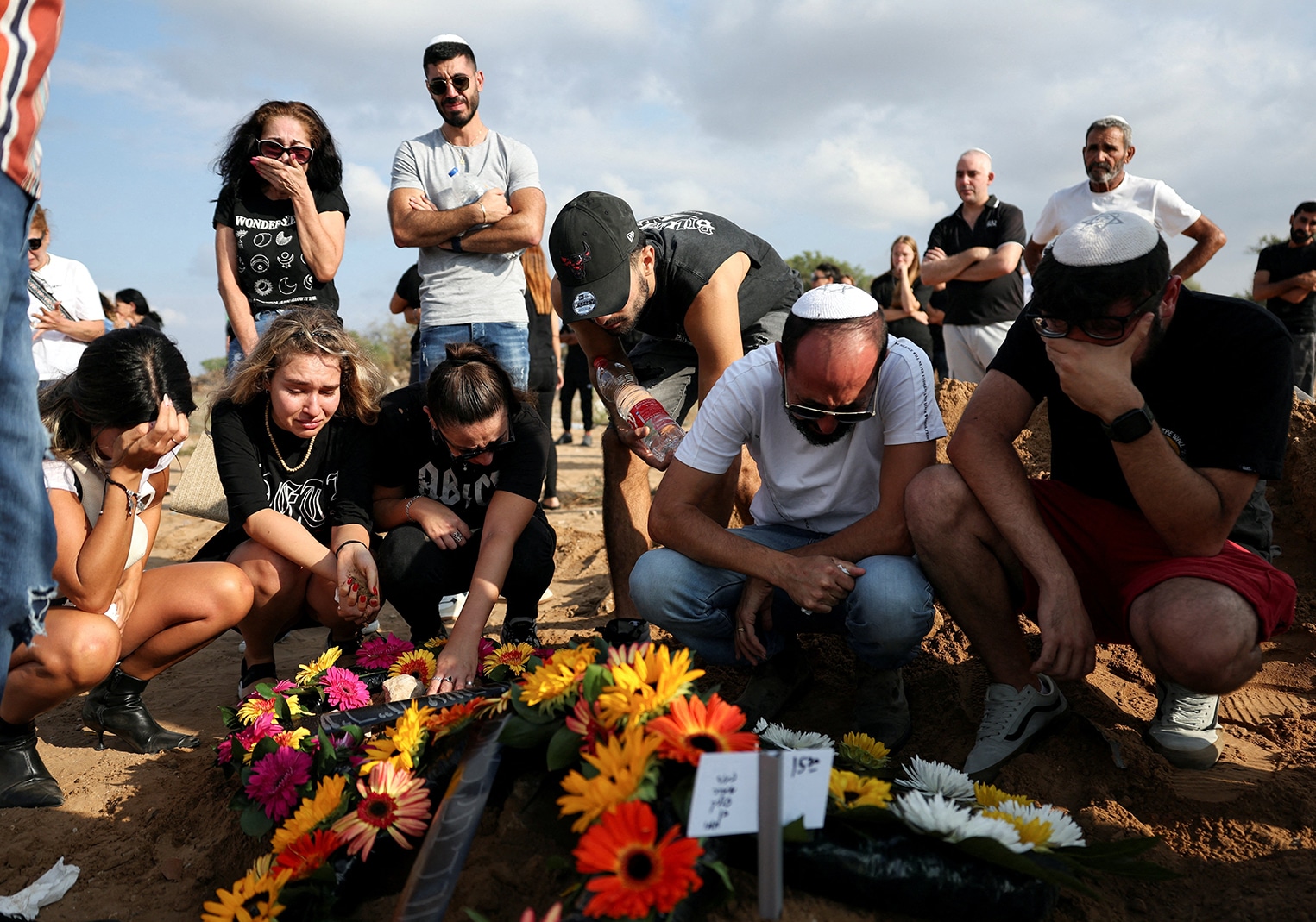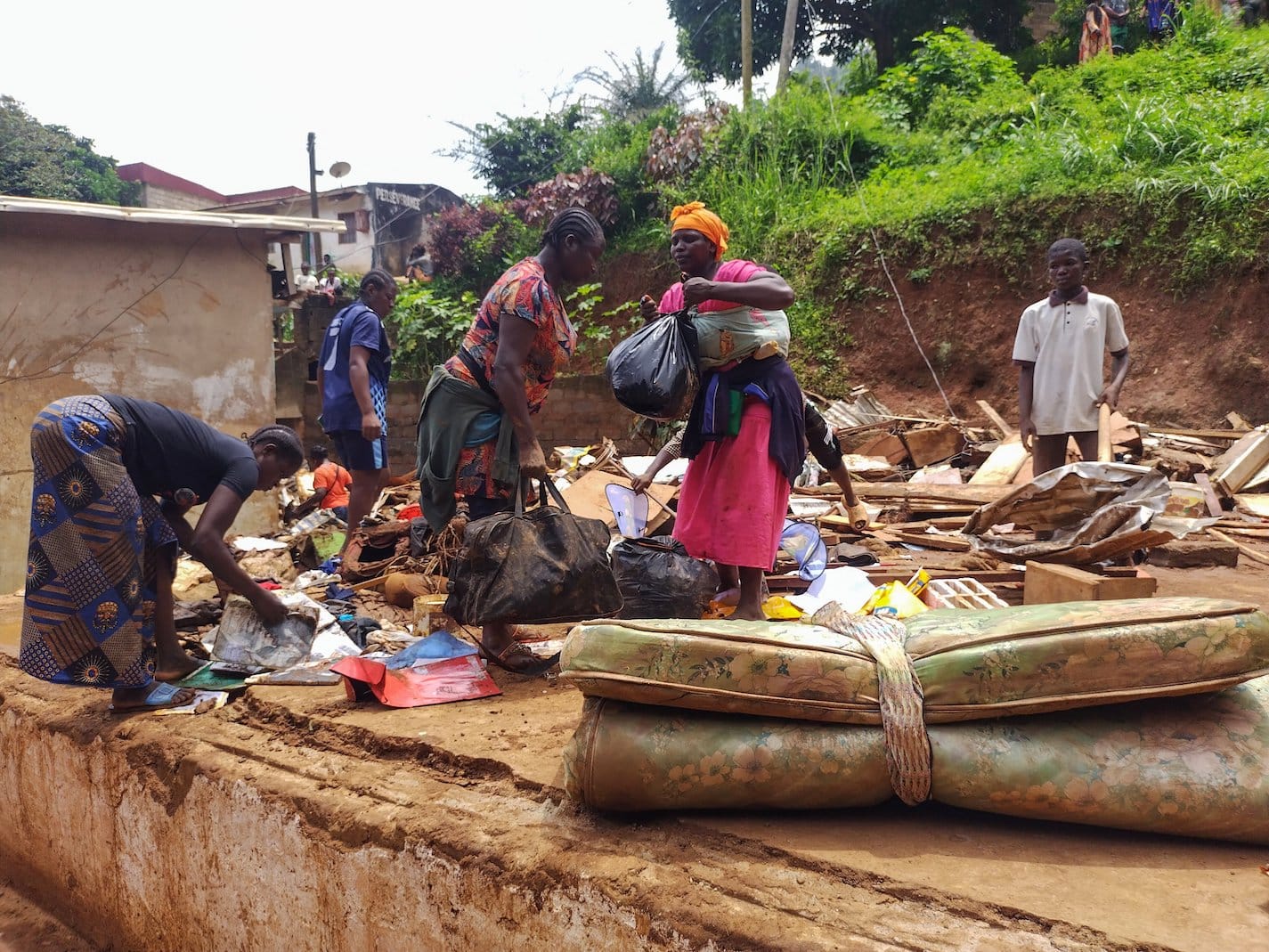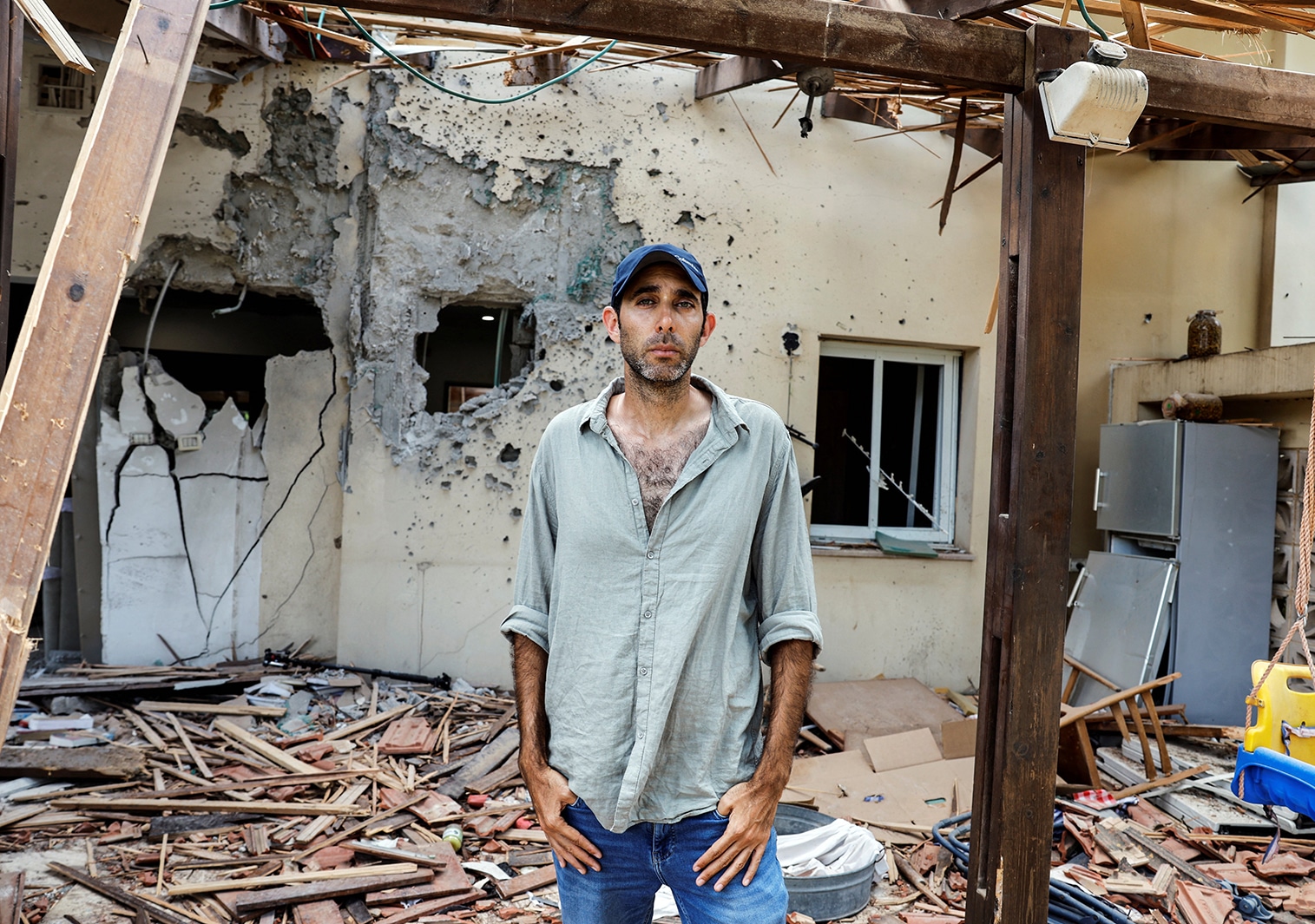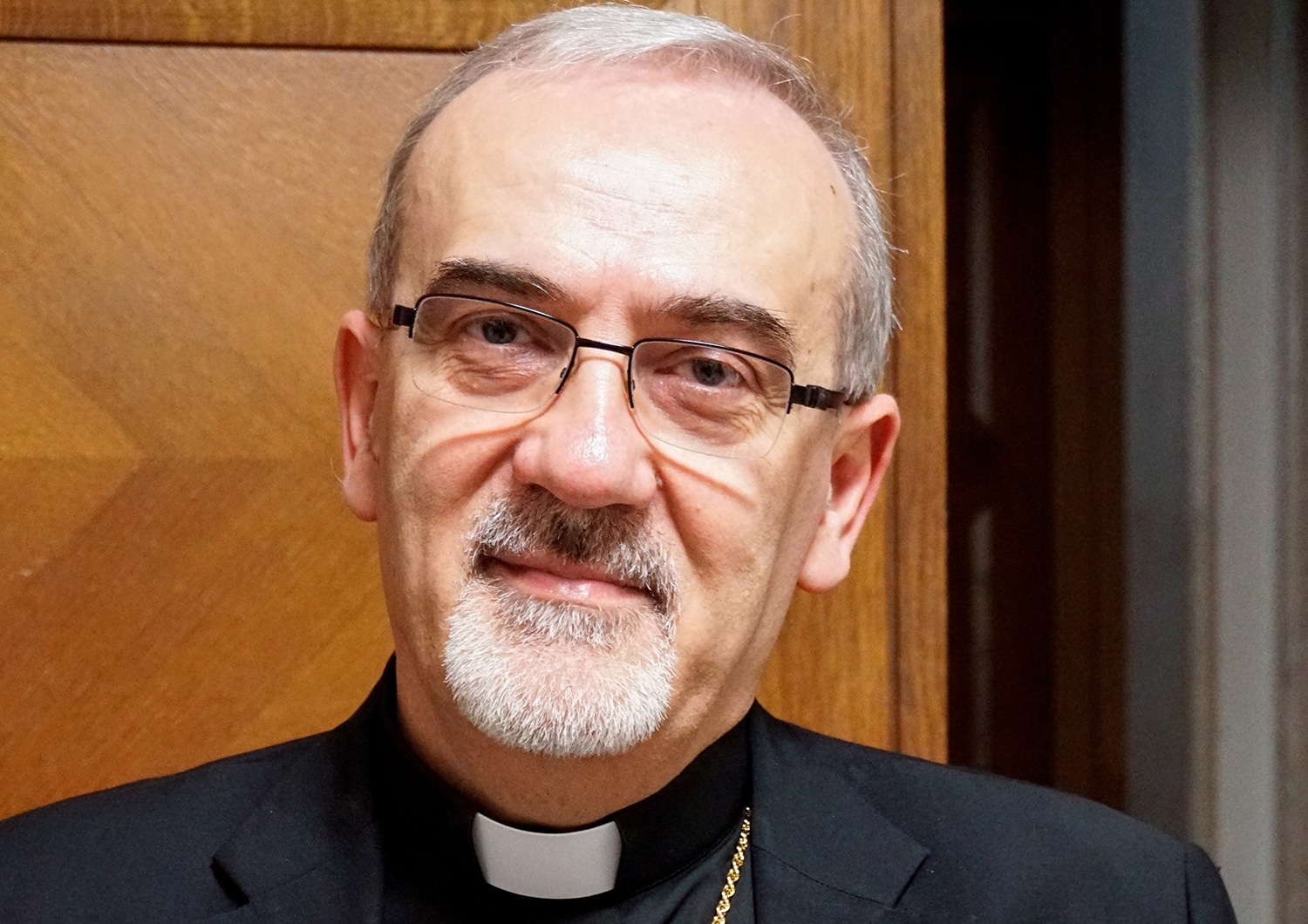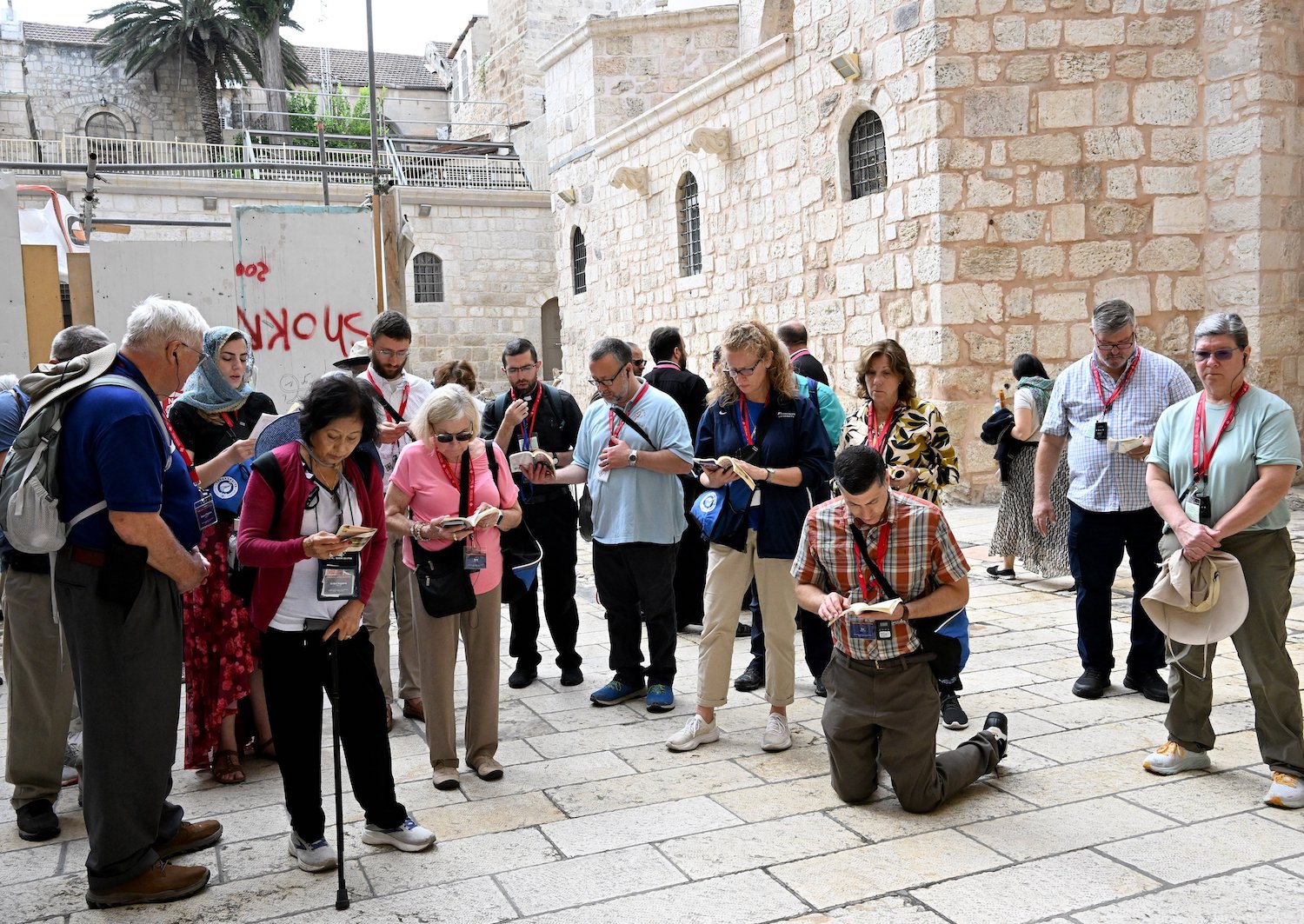(OSV News) — When Polish voters choose a new parliament Oct. 15, it will follow an election campaign marked by bitter infighting in this traditionally Catholic country.
In power for eight years, the governing Law and Justice party, known by its Polish acronym PiS, will be hoping for a record third term but is unlikely to gain enough votes to form a government outright.
And though widely believed to favor PiS over its rival, the Civic Coalition, Poland’s predominant church has avoided taking sides and will be watching the outcome closely.
“This campaign has been exceptionally harsh, with attempts to discredit opponents which have infringed human dignity,” Marcin Przeciszewski, director of Poland’s influential Catholic Information Agency, or KAI, told OSV News.
“The church will face problems whoever wins or loses — as PiS seeks to instrumentalize it for political advantage and the Civic Coalition challenges it on key issues. While it will be hard for any party to govern, it will be even harder to heal the deep divisions which have obscured any notion of a common good,” he said.
Although Polish-style politics defy Western labels, the tags “national-conservative” and “left-liberal” are commonly used to describe the two main party blocs, whose attitudes toward the church and its teachings also differ sharply.
Upholding Christianity in Polish society
Led by veteran ex-prime minister Jaroslaw Kaczynski, PiS won an outright majority in October 2015, and was reelected in 2019 with the largest vote since Poland’s return to democracy in 1989.
Its 300-page program pledges to pursue economic growth and regional development, while supporting families and the elderly, and upholding the presence of Christianity, “above all of the Catholic Church.”
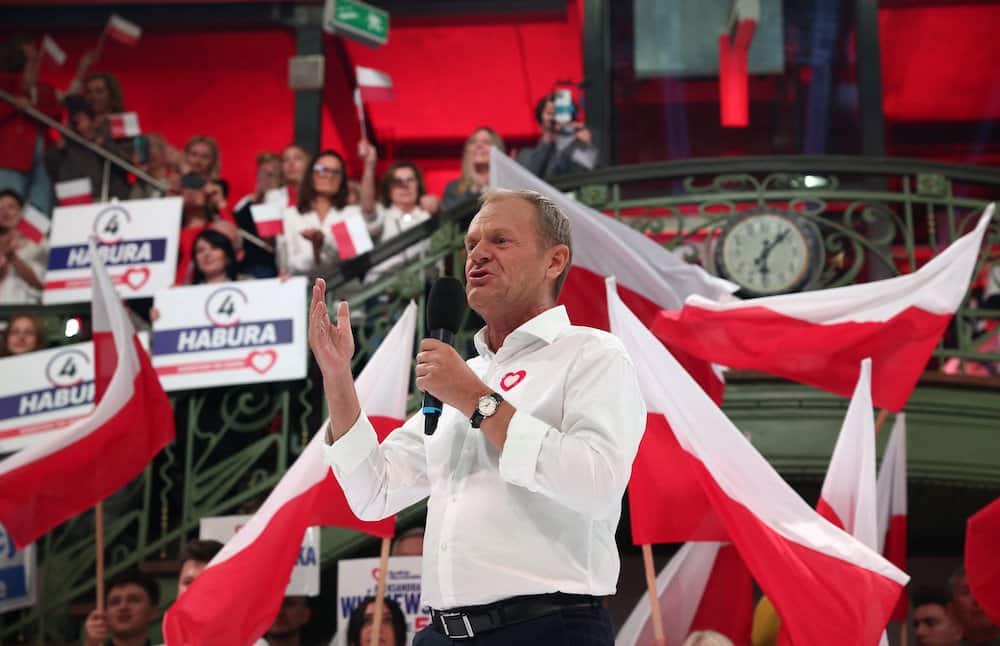
The PiS government, currently headed by Prime Minister Mateusz Morawiecki, has been threatened with European Union sanctions over alleged interference with media and judicial independence, and has faced street protests for backing LGBT restrictions and a tightened ban on abortion in January 2021.
The Civic Coalition, headed by another ex-prime minister, Donald Tusk, who was president of the EU’s European Council in 2014-2019, has pledged sweeping changes.
Its 100-point program declares abortion, contraception and in vitro fertilization to be fundamental rights and will restrict religious education — Catholic religion classes are part of the public education system in Poland — and state funding for church activities.
Polish bishops weigh in
Despite the sharp differences, Poland’s Catholic bishops instructed clergy in May to “keep their distance from political parties,” insisting the church would avoid standing “on the right, left or center.”
“We must all remember the goal of electoral rivalry is to choose a government that enjoys the widest possible support … rather than defeating or destroying political rivals,” the bishops’ Permanent Council said in its statement at the start of campaigning.
“When political rivalry is seen as a ruthless power game, we wish to recall, in line with the church’s social teaching, that politics is, in its deepest essence, a call to love of neighbor, expressed in service to truth, human dignity, freedom, justice and solidarity,” the bishops said.
Przeciszewski, the KAI agency director, regrets the bishops’ appeal went unheeded. It remained, he thinks, “a voice crying in the wilderness,” as politicians “highlight the need to build a national community while doing their best to destroy it.”
In an “election vademecum,” published Sept. 21, the Polish bishops’ conference again urged candidates to observe “moral order principles” and called on citizens to “respect the election results.”
Among seven criteria to guide voters, the document listed support for life, family rights and traditional marriage between one man and one woman, as well as respect for religious freedom and “ethical economic processes.”
Clashes with PiS, Morawiecki government
Although the vademecum was seen by some media as an invitation to vote for PiS, Cardinal Grzegorz Rys of Lódz, who was made a cardinal on Sept. 30, told Onet Polish website that “there is no permission for the church to be entangled in an election campaign. There isn’t!”
“If priests in my diocese come out with a political message in the pulpit, they will first be reprimanded, and then we will seek further consequences. If a priest puts up an election poster, regardless of what party, he will get a call from me the same day,” he said.
While often said to be close to PiS, especially at local level, the Catholic Church has clashed with the Morawiecki government on numerous issues, including its treatment of migrants and refugees.
In October 2020, amid protests for legal abortion spreading around the country, including instances of attacks on churches, Poland’s primate, Archbishop Wojciech Polak of Gniezno, lashed out at Kaczynski for calling on PiS supporters in a radio interview to “defend the churches.” “No instrumentalization of matters of faith and the church will do any good,” the primate told Polish RMF radio.
In August 2021, the bishops’ conference president, Archbishop Stanislaw Gadecki of Poznan accused the government of violating Poland’s 1993 Vatican concordat, which is a state agreement between a given country and the Vatican, and its 1997 constitution during the coronavirus pandemic, by failing to respect church rights or comply with legislative and consultative requirements.
No previous government, he added, had “displayed such total disrespect.”
Przeciszewski thinks the impression of close church-PiS relations was stoked not by clergy but by party politicians, in a “constant attempt,” backed by state media, to portray themselves as devout Catholics.
Election set for day memorializing John Paul II
With the election itself being held on a Sunday when Poland marks its annual “Papal Day” in memory of St. John Paul II (organized every year ahead of the anniversary of Karol Wojtyla becoming pope on Oct. 16, 1978), he thinks church leaders should have done more to dispel claims of a special church-government link.
“Although this was made very clear by the Permanent Council last May, more should have been done to back it up,” Przeciszewski told OSV News adding that “it should be obvious the church cannot let itself be used for party interests, since this immediately alienates ordinary faithful who hold different political views.”
The Polish church is facing its own challenges.
Declining Mass attendance, vocations
A vocations boom during St. John Paul II’s 27-year pontificate has given Poland more clergy than ever before — with 34,700 diocesan and order priests serving in over 10,000 parishes.
The church operates a vast educational and charitable network, while its youth groups and evangelical movements are expanding, and it still has up to 3000 clergy and lay missionaries serving abroad.
However, recruitment to female religious orders has plummeted and seminary admissions are falling sharply, with 1900 priesthood candidates enrolled in 2023, compared to 6800 in 2000.
In late September, new church data also confirmed a decline in Sunday Mass attendance, especially among young Poles, reaching 28%, compared to 47% in 2000.
“While in the older generation, we still have high rates of identification with the Church and declarations of belief in God (88%), the middle generation has already seen some weakening of faith, while the young generation is quite different,” the report “Church in Poland” issued Sept. 26 said.
Secularism or fallout from clerical sexual abuse?
Church experts blame the decline on inevitable secularization.
But the church’s image has been damaged by a sexual abuse scandal, with 11 mostly retired prelates sanctioned for ignoring complaints and cover-up allegations directed against the late pope himself in a recent TV film and book.
Although PiS offers a pro-Catholic program, Przeciszewski said, its selective support has damaged the church, making both electoral options problematic.
“Of course, PiS is showing off its closeness to the church — but it’s only helping those parts which conform with its party line,” the KAI agency director told OSV News.
“The resulting dilemma reflects an old truth — that the church in Poland works best when the predominant political power is against it. It knows how to deal with opponents, but has never really devised a strategy for dealing with so-called friends.”
In any event, the election will be key to current developments in Poland, the EU’s fifth most populous country, now rapidly expanding as an economic and military power.
With 235 places in the 460-seat Sejm lower house and 46 in the 100-seat Senate, PIS is leading in voter surveys with around 35% to the 27% of the Civic Coalition, which holds 134 Sejm and 41 Senate seats — with the two largest alternative parties, Third Way and New Left, holding 30 and 49 seats respectively.
Even if opposition parties win government, they will require a three-fifths parliamentary majority to overturn vetoes by President Andrzej Duda, a former PiS member in office since 2015.
Amid threats of instability from the war in neighboring Ukraine, Russian interference and tension with Poland’s EU and NATO partners, there are fears a post-election deadlock could leave the country dangerously exposed.

